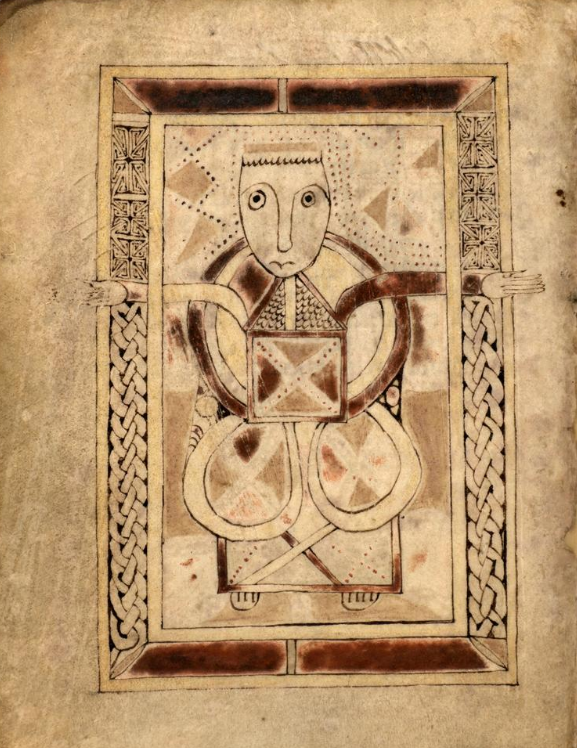Within the covers of the original book are portions of the Gospels of Matthew, Mark and Luke along with the entire Gospel of John, all written in “very bad” Latin or perhaps the Insular style used by scribes at the time.
It is a copy of the Vulgate Bible, which is the bible as originally written in Latin by St Jerome who was commissioned to do so by Pope Damascus I in AD 382.
The Gospels


The manuscript is lavishly illustrated with numerous drawings, patterned borders, illuminated initials, and “doodles”.
This is also known as “An Illuminated manuscript”.
The black ink and coloured inks of yellow and orange made using natural dyes were used by the artists who drew the illustrations.
Decorations
Illuminated initials

The first page of each Gospel is elaborately decorated. The initial occupies between 2 – 5 lines. This example is located at the start of Matthew’s Gospel.
Scattered throughout the latter half of the book are drawings, described as doodles.
There is some debate as to their significance, some authorities describe them merely as doodles whilst other see them as being of more significance in relation to portions of the text.

Doodles


Colophon
The final entry made by the scribe is in his own native Gaelic language.

This translates as
“Be it on the conscience of anyone who reads this
splendid little book that they say a prayer for
the soul of the wretch who wrote it”
Two Further Religious Rites
At some unknown date or dates, two further religious rites were added both written in Latin.:
The Apostle’s Creed which is written on Folio 85r
And the Visitation for the sick – at some time an instruction written in Scot’s Gaelic was inserted “Here give him the sacrifice”. The visitation is written on Folios 28v & 29r.
This completes the section examining the Book of Deer as it was originally written. However, it is not the original 10th century text which makes the Book of Deer so unique and precious but the later 12th century entries.

